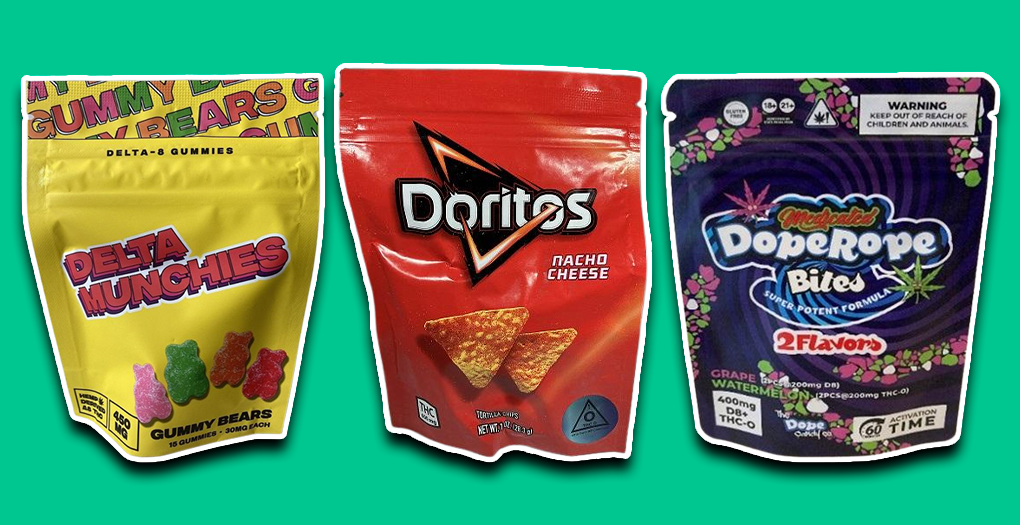
When TINA.org Investigations Collide
These brand collabs are far from fab.
TINA.org submits comment regarding the need for a labeling rule that makes sense.
| | Laura Smith
UPDATE 3/13/24: The USDA has finalized a rule that allows meat and other products to be labeled “Product of USA” or “Made in the USA” only when they are derived from animals born, raised, slaughtered and processed in the United States. The rule does not apply to other forms of advertising, including digital labels. It goes into effect on Jan. 1, 2026. Our original blog follows.
The USDA’s Food Safety and Inspection Service (FSIS) is soliciting public comment about its proposal to amend its regulations that define the conditions under which meat and other products can be labeled “Product of USA” or “Made in the USA.” Currently, as shocking as it may sound, a meat product can be labeled as being of U.S. origin so long as some processing of the meat happened domestically, even if the animal was born, raised, slaughtered and even partially processed in another country.
FSIS is proposing to change this definition so that it matches what most U.S. consumers think the term “product of USA” means: that all production steps (i.e., born, raised, slaughtered, processed) took place in the U.S.
Today, TINA.org submitted a comment urging FSIS to move forward with this change as the current definition defies logic and misleads consumers.
As explained in more detail in the comment, in addition to consumers’ misunderstandings of what the term currently means, there is no realistic way for consumers to ascertain the true origin of meat products sold in the U.S., as demonstrated by TINA.org’s efforts to obtain such origin information. During a year-long investigation, TINA.org attempted to ascertain the origin information of specific meat products to no avail. A timeline follows.
November 2020: TINA.org’s first stop in its quest for this information was the USDA Economic Research Service. There, a representative informed TINA.org that import and export data regarding meat products is considered “business confidential” and therefore not generally disclosed by the USDA.
Further complicating matters, according to the representative, is the fact that “when it comes to beef, you’re talking about an animal that was at least a year old at slaughter and may have changed ownership at multiple stages of its life” crossing international borders throughout that time. As such, it is unlikely that the USDA would or could provide origin information, according to the representative, who suggested TINA.org contact the companies selling the products for this information instead.
January 2021: TINA.org next filed two Freedom of Information Act (FOIA) requests with the USDA requesting origin data for beef and pork products subject to 2019, 2020 and 2021 recalls – i.e., meat products deemed by FSIS to be adulterated or misbranded – the hypothesis being that if the USDA would ever disclose origin information about meat products, it would be when the agency publicly determined the products were mislabeled or unfit for human consumption. However, after numerous follow-up emails and telephone calls with various USDA representatives regarding TINA.org’s requests, TINA.org learned that the USDA’s foreign counterparts in the countries from where the animals and products were imported can choose to categorize the requested information as proprietary and therefore not disclosable.
May-June 2021: The USDA informed TINA.org that many of the responsive records sought in TINA.org’s initial FOIA requests were being withheld in full because they contained “commercial or financial information that is customarily treated as private by the business submitters” and is therefore “considered confidential.”
In total, origin data for only five of 88 recalls listed in TINA.org’s FOIA requests were produced.
July and September 2021: TINA.org appealed the USDA’s refusal to disclose the origin information, explaining, among other things, that TINA.org was not seeking commercial or financial information, but rather, country of origin information only – that is, where did the animal and/or raw meat used in products that were recalled by the USDA and consumed by U.S. consumers originate from, as such information is of vital importance to U.S. consumers.
October and December 2021: The USDA provided data for only three additional recalls, meaning that after 13 months, countless emails, numerous phone calls, petitions and letters, TINA.org was only able to obtain incomplete and confusing origin information for less than 9 percent of the meat products requested.
This astonishingly arduous process was a complete failure and made clear that it is impossible for consumers to obtain origin information regarding the meat they are consuming.
By way of example, U.S. consumers have no realistic way of ascertaining where the animals used in the following “Product of USA” beef products were born, raised or slaughtered.
(Note: TINA.org is not suggesting that any of the products shown above are mislabeled. In fact, TINA.org does not have any origin information regarding these products other than what is noted on the labels.)
Given the impossibility of obtaining origin information, coupled with consumer confusion as to what “Product of USA” actually means, an amended rule is necessary to protect U.S. consumers from harm, as well as domestic farmers who raise cattle in the U.S. from start to finish.
In addition, TINA.org is urging FSIS to apply this revised definition not only to physical labels, but to digital labels as well, as nearly half of Americans purchase their groceries, including meat products, online without ever seeing physical labels. This approach would be consistent with the Federal Trade Commission’s Made in USA Labeling Rule (which was enacted following a TINA.org petition).
TINA.org is also urging FSIS to rigorously enforce the proposed rule in order to properly protect consumers. As we know from our experience with other rules and with other agencies, an amended rule will be of little import – and will not effectively prevent harm – if companies are allowed to ignore it. Though marketers may be aware of the rule and change in definition, they will have little reason to follow it if the risk of enforcement is low.
Read TINA.org’s full comment here.
For updates, click here.
These brand collabs are far from fab.
First, e-liquids. Now, THC edibles. Will energy drinks be next?
TINA.org applauds proposed amendments but pushes for more.


